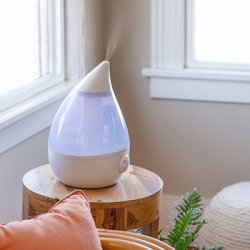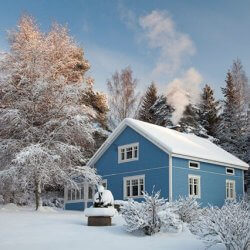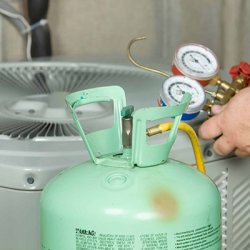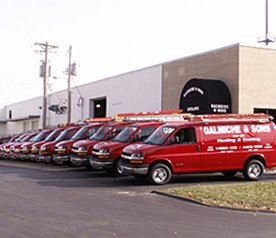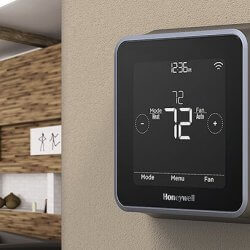Summers may be fun but they can also be equally uncomfortable. Particularly with the humidity that we experience in St. Louis, the sweat and the heat do not make a very pleasant combination. Most often, it is the humidity that makes us more miserable than the temperature outside. Humid climates drain you of your energy and make you feel exhausted easily with all that sweating. If you know how to lower humidity in your house, you can at least be more comfortable indoors no matter how bad it is outside.

The damage that humidity does goes beyond just discomfort. Excess humidity in your house can also cause breathing issues, allergies, infections, and may also be bad for your home’s interiors and structure. Get your indoor humidity fixed by the best HVAC contractors in St. Louis. Call us at Galmiche & Sons today at 314-993-1110 to learn more.
What Should Be the Ideal Humidity in Your House?
For indoor environments, the humidity that we measure is relative humidity. Ideally, the relative humidity inside your house should be 30% to 50%. But in St. Louis, the humidity is almost always above 50%. It even goes as high as 80% or more on hot summer days. To ensure more comfort inside your home, you need to know how to lower humidity in the house with these few steps.
How to Lower Humidity in the House

- Use air conditioning: The best solution to a hot and humid climate is air conditioning. Air conditioning helps keep your indoor cooler along with maintaining the ideal humidity levels. For achieving the best results with residential heating and cooling systems, it is important to get your air conditioners serviced every year. Over time, they tend to accumulate a lot of dust, the refrigerant levels run low on repeated use, and so on. A good servicing that includes air filter cleaning and fine-tuning the system can increase its longevity and improve your air conditioners ability to control humidity in your house.
- Use exhaust fans: If you think an air conditioner is not a practical option, such as in your bathroom or the kitchen, use exhaust fans instead. Run the exhaust fans when you are cooking or just after a bath to ensure that the excess moisture produced is sucked out by the fans. This can make a huge difference lowering humidity.
- Have good ventilation in the house: It is very important to have a well-ventilated house in humid climates. Having lots of windows and ventilators can keep your home comfortable and airy naturally. When there is no need for running the AC, just open the doors and windows to let fresh air in.
- Avoid steam or hot water: Steam and hot water tend to produce more moisture and can make an already humid environment worse. Avoid bathing with warm water or avoid boiling water on the stove when humidity levels in the house are already high. If you have to slow cook something, cover the pot with a lid to ensure the steam does not escape.
- Keep houseplants out in the open: No matter how pretty they look indoors, houseplants can be a big source of moisture too. In the humid summer months, it is best to keep them in an outdoor space where there is enough air and sunlight, such as a balcony or the patio.
- Get a dehumidifier: When you look for answers on how to lower humidity in the house, you may come across dehumidifiers as a solution. A dehumidifier does what it claims – dehumidifies your home without cooling it. At times when the heat is not a problem, a dehumidifier may do the trick. It can also supplement and enhance the dehumidification effects of your AC. There are numerous models available in the market.
Lower Humidity in Your House with the Most Reliable Heating and Cooling Services in St. Louis
We, at Galmiche & Sons, have been helping residents of St. Louis with heating and cooling services since 1950. With expert technicians skilled in air conditioning installation, repair, and servicing, we can take care of all your residential heating and cooling needs.
Contact our heating and air conditioning experts today or request a quote for HVAC maintenance to learn more.



